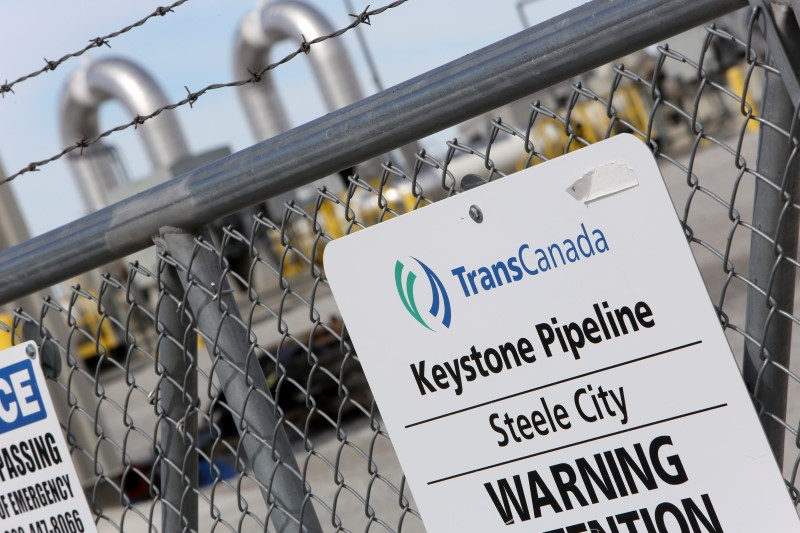By Ayesha Rascoe
WASHINGTON (Reuters) - TransCanada Corp faces a rocky legal path as it seeks to overturn President Barack Obama's denial of its Keystone XL pipeline or at least recoup some of its lost investment in the multibillion dollar project.
The Canadian company filed a lawsuit in federal court in Texas on Wednesday, asking the court to declare the White House decision unlawful. Separately, TransCanada announced its intent to issue a claim under the North American Free Trade Agreement (NAFTA) for $15 billion in damages.
Both cases face an uphill battle, but international trade lawyers say the high-profile U.S. political battle over the pipeline may help TransCanada's claims of unfair treatment under NAFTA.
The trade agreement between Canada, Mexico and the United States allows investors from those countries to seek damages when they feel they have been discriminated against or treated unfairly by one of the other NAFTA member nations.
TransCanada contends that the United States "unjustifiably" discriminated against the Keystone project and had previously approved pipelines from other investors in a shorter amount of time and under different criteria than applied to Keystone.
Under NAFTA, investor-state challenges are decided by a three-person panel composed of private arbitrators chosen by the parties involved in the dispute. The tribunal has no power to alter the White House's decision, but can award damages.
The Keystone XL was designed to link existing pipeline networks in Canada and the United States to bring crude from Alberta and North Dakota to refineries in Illinois and, eventually, the Gulf of Mexico coast. It sparked widespread opposition from environmental groups and a tug-of-war over its approval between Republicans and Democrats.
Obama rejected the project in November, seven years after it was first proposed, saying it would undercut the country's global leadership in fighting climate change by promoting the import of carbon-intensive oil sands crude.
The United States has faced more than a dozen challenges by investors claiming unfair treatment under the trade deal, but has to date never lost such a case.
White House spokesman Josh Earnest trumpeted that success record on Thursday when asked about the potential NAFTA case.
"We are confident that the decision that was made vis-à-vis the Keystone pipeline is entirely consistent with all of our international obligations, including our obligations under NAFTA," Earnest told reporters.
LITTLE CHANCE CHALLENGES WILL SUCCEED
Some factors involved in the review process for Keystone may play in TransCanada's favor in the trade case, analysts said.
Public statements from U.S. lawmakers and the White House stressing the importance of domestic oil production over Canadian crude may support claims of discrimination on basis of nationality, said Mark Warner, an international trade lawyer.
"I think it's the strongest case to go forward against the United States, but the chances of success are still very low," said Warner.
Simon Lester, a trade policy analyst with libertarian think tank Cato Institute, said TransCanada's claim that the project denial was arbitrary might be bolstered because the administration essentially blocked transport of Canadian oil sands crude via one pipeline, but not rail or other methods.
"There will be a bit of reluctance to find against the United States on such a high-profile case, but tribunal judges should not completely ignore the facts of the law," Lester said.
Separately, TransCanada's federal court case against the Obama administration argues that Obama's decision was unconstitutional and challenges the president's authority to unilaterally block construction of a cross-border pipeline for reasons not directly related to the physical project.
Other federal lawsuits have challenged the approval of presidential permits for cross-border oil pipelines and mostly focused on environmental issues and alleged violations of administrative law. Courts in those cases have generally said the permitting process falls under the president's Constitutional authority to conduct foreign policy.
Alan Dunn, an international trade lawyer at Stewart and Stewart and former U.S. assistant secretary of commerce, said it was "novel and intriguing" that TransCanada was challenging the president's decision on Constitutional rather than procedural grounds.

TransCanada's suit "may break some new paths in the jurisprudence of international agreements," said Dunn.